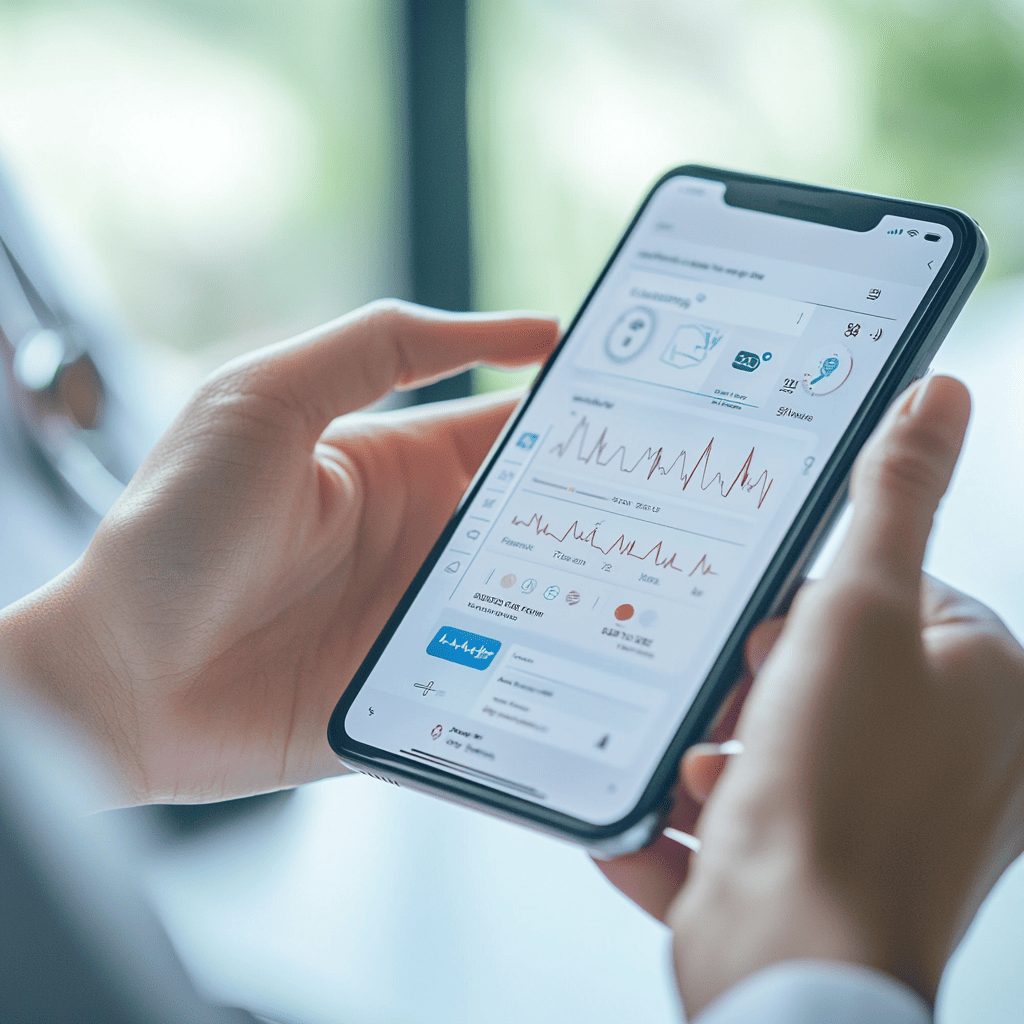Chronic diseases, such as diabetes, heart disease, and asthma, affect millions worldwide and place a significant burden on healthcare systems. Traditional chronic care management has struggled to keep pace with the rising number of patients and the need for continuous, personalized care. However, custom healthcare software development is transforming the landscape by enabling better patient engagement, real-time monitoring, and improved outcomes.
In this article, we will explore how custom healthcare software development is revolutionizing chronic care, supported by real data, insights, and industry trends. We’ll also analyze the impact of chronic care management software and how partnering with a mobile app development company can ensure seamless integration of innovative healthcare solutions.
The Growing Need for Custom Healthcare Solutions

Chronic diseases are a leading cause of death and disability worldwide. According to the World Health Organization (WHO):
– 71% of global deaths are caused by chronic diseases.
– The number of people aged 60+ is expected to double by 2050, increasing the prevalence of chronic conditions.
– Over 10% of the global population suffers from diabetes, making blood glucose monitoring a crucial aspect of chronic care management.
Traditional healthcare models struggle to provide efficient long-term care, leading to preventable hospitalizations, increased costs, and reduced quality of life for patients. Custom software development can address these challenges by offering tailored solutions that cater to the specific needs of patients and healthcare providers.
Key Benefits of Custom Healthcare Software in Chronic Care

1. Personalized Patient Care
Custom healthcare software enables healthcare providers to offer personalized treatment plans based on real-time patient data. AI-driven algorithms help predict health deterioration and suggest proactive interventions.
2. Remote Patient Monitoring (RPM)
Modern chronic care management software integrates with wearable devices to track vitals like heart rate, blood pressure, and glucose levels. This ensures continuous monitoring without frequent hospital visits.
3. Cost Reduction
A study by the American Health Association revealed that implementing custom chronic care management software can reduce hospital readmissions by 20-30%, leading to significant cost savings for healthcare providers.
4. Seamless Integration with EHRs
Custom software solutions can be integrated with Electronic Health Records (EHRs), ensuring that healthcare providers have instant access to comprehensive patient histories.
5. Mobile Health Applications
A mobile app development company can create patient-centric apps that enable medication reminders, symptom tracking, and direct communication with doctors, significantly improving adherence to treatment plans.
Industry Trends in Chronic Care Software Development
The demand for chronic care management software is rising, driven by advancements in AI, telehealth, and IoT-enabled devices. Below is a forecast of the global custom healthcare software development market:
Table 1: Market Growth of Healthcare Software Development
| Year | Market Size (Billion USD) | Growth Rate (%) |
| 2022 |
|
|
| 2023 |
|
|
| 2024 |
|
|
| 2025 |
|
|
Custom software solutions leverage emerging technologies to enhance chronic care management:
– Artificial Intelligence (AI): Predicts health risks and suggests preventive measures.
– Blockchain: Ensures secure data sharing between patients and providers.
– IoT Devices: Enable real-time health tracking and reporting.
– Telemedicine: Facilitates virtual doctor consultations for chronic care patients.
The Role of Mobile Apps in Chronic Care

Mobile applications play a crucial role in empowering patients to manage their conditions more effectively. The use of custom healthcare software development in mobile applications has led to major improvements in patient engagement, adherence to treatment plans, and overall chronic disease management.
Features of an Effective Chronic Care Mobile App
– A well-designed mobile application for chronic care should include:
– Symptom tracking: Allows patients to log daily symptoms and detect health patterns.
– Medication reminders: Sends alerts to help patients adhere to prescriptions.
– Virtual consultations: Enables real-time communication with healthcare providers.
– Personalized health recommendations: Offers AI-based suggestions for diet, exercise, and treatment adjustments.
– Wearable device integration: Collects real-time health data for continuous monitoring.
– Emergency alerts: Notifies healthcare providers and family members in case of a medical emergency.
Benefits of Mobile Health Apps for Chronic Patients
– Increased patient engagement: Studies show that mobile apps improve adherence rates by 50%.
– Better health outcomes: AI-powered recommendations result in more effective treatment.
– Reduced hospital visits: Remote monitoring helps prevent unnecessary hospitalizations.
– Data-driven insights: Physicians can track and analyze patient progress more efficiently.
Table 2: Patient Engagement Rates with Mobile Health Apps
| Feature | |
|---|---|
| Engagement Rate (%) | |
| Medication Reminders | 78% |
| Symptom Tracking | 65% |
| Virtual Consultations | 72% |
| AI-driven Alerts | 81% |
How to Choose the Right Development Partner
Choosing the right development partner for custom healthcare software development is critical to the success of a chronic care solution. Here are key factors to consider:
1. Experience in Healthcare Software Development
A development company with a proven track record in healthcare software understands the regulatory requirements, industry best practices, and patient-centered design approaches necessary for a successful project.
2. Compliance with Healthcare Regulations
Ensure that the software development partner adheres to compliance standards such as HIPAA (Health Insurance Portability and Accountability Act), GDPR (General Data Protection Regulation), and HITECH (Health Information Technology for Economic and Clinical Health Act) to ensure data security and privacy.
3. Expertise in AI, IoT, and Data Analytics
Since modern chronic care solutions rely on AI-driven analytics, IoT devices, and remote monitoring, choosing a partner with expertise in these technologies can significantly enhance the software’s capabilities.
4. Seamless Integration Capabilities
A reliable partner should have experience integrating new software solutions with existing Electronic Health Records (EHRs), patient portals, and other hospital management systems.
5. Scalability and Customization
A development partner should provide scalable and customizable solutions to adapt to the evolving needs of healthcare providers and patients.
6. Post-Deployment Support and Maintenance
Ongoing support and updates are crucial for maintaining software efficiency and compliance with new regulations. Choose a partner that offers long-term maintenance and technical support.
Conclusion

The future of chronic care lies in custom healthcare software development that offers personalized, data-driven, and efficient solutions. With chronic diseases on the rise, healthcare providers must embrace custom software development to enhance patient outcomes, reduce costs, and streamline operations.
If you’re looking for a mobile app development company to create an innovative chronic care solution, investing in custom healthcare software development is the key to transforming patient care.
Ready to Transform Healthcare?
Contact our team at WTT Solutions to build the next-generation chronic care management software and enhance patient outcomes with cutting-edge technology.

Leave a Reply